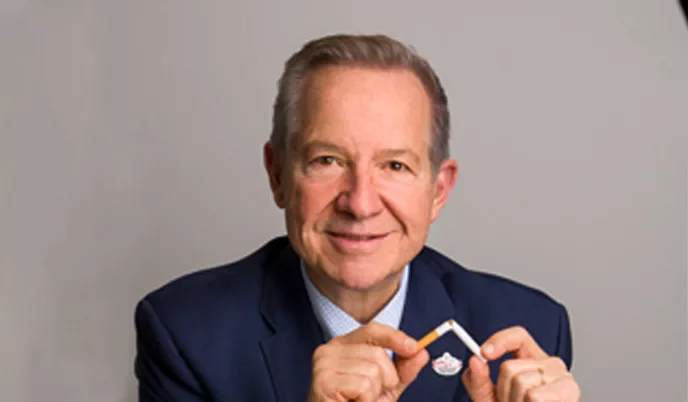
Tobacco Addiction: Tracking America’s Deadliest Killer
Mike Eheler didn’t want to die and leave his wife and four kids without him. Like most smokers, he became addicted as a kid. He had smoked for 23 years, his grandmother had died from lung cancer, and now he could feel the toll on his health — and on his ability to support his family in the way he’d dreamed. It was slipping away, one $7 pack of carcinogens at a time.
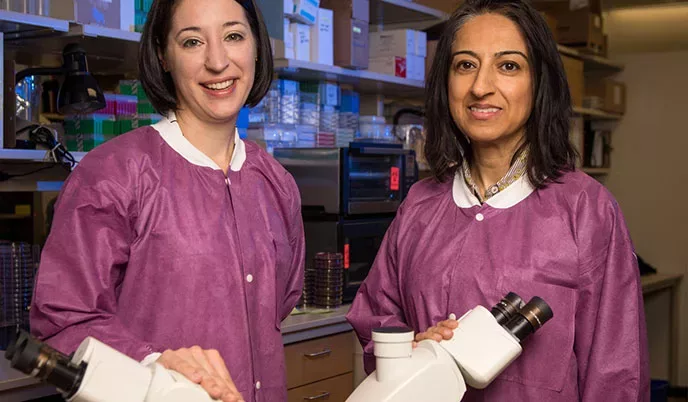
New Line of Research Takes Guts
“You know, if you’re going to poop anyway, you might as well get paid for it!”

SPORE Grant Bolsters Cancer Treatment Research
In recent years, a light often burned late in a Department of Human Oncology office at the University of Wisconsin School of Medicine and Public Health. There, you’d find Department Chair Paul Harari, MD, toiling over a project that resembled Sisyphus’s mythical task: rolling a boulder up a hill, only to have it come crashing down.

Interprofessional Health Education
When University of Wisconsin Madison leaders asked Jeanette Roberts, PhD, MPH, in 2013, to devote another year to her role as dean of the School of Pharmacy, her affirmative response brought with it a deeply held condition: creation of a center that would foster coordination among health care related programs throughout UW-Madison.

Advances in Asthma
When I started caring for asthma patients, children and adults with this condition didn’t do physical activity. Students got doctors’ notes to sit out of physical education classes,” recalls William Busse, MD ’66, who began his medical career in allergy at a military hospital near Seattle in the late 1960s.

Preventing Obesity: Research and Community-Based Programs Tackle Statewide Public Health Challenge
More broccoli!” “Pass the onions!” This is not what you’d expect to hear among first- and second-grade students.
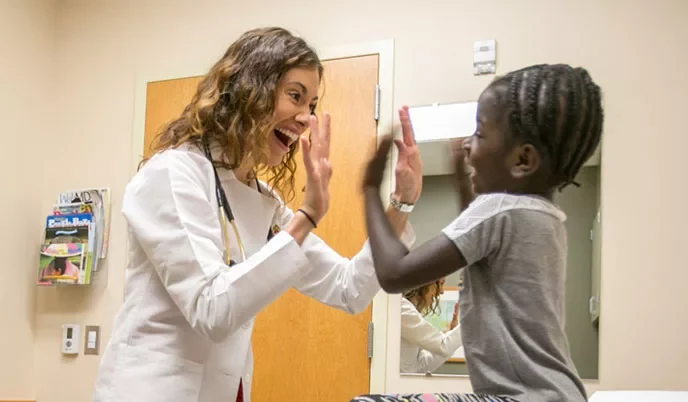
A Decade of Progress: Melding Medicine and Public Health
A decade ago, the University of Wisconsin Medical School became the nation’s first school to fully integrate medicine and public health, signifying its dedication to address society’s most challenging health-related problems.

The Ethics of Transplantation
The annual Bioethics Symposium is often punctuated by profound anecdotes as local and national presenters discuss points that may challenge how society views issues of biomedical significance. Sponsored by the University of Wisconsin School of Medicine and Public Health and the Department of Medical History and Bioethics, it brings together students, faculty and staff to explore topics from myriad angles.
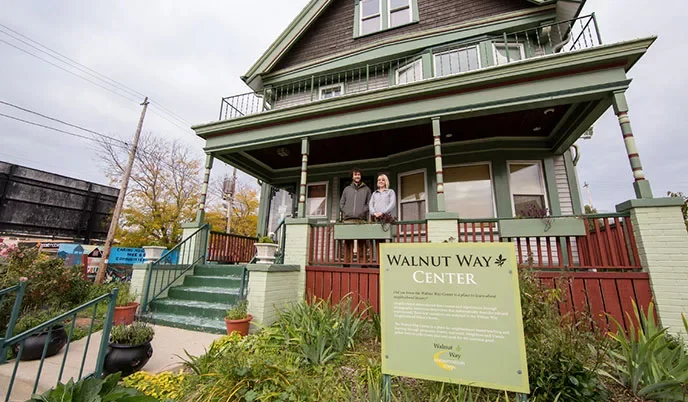
Promoting Health and Health Equity in Urban Wisconsin
In a central Milwaukee, Wisconsin, neighborhood landmarked by Jake’s Deli and the Northside YMCA, transformations are taking place.

Team Approach to Alzheimer's Disease Furthers Prevention, Diagnosis and Treatment
Over the past decade, as part of the Wisconsin Registry for Alzheimer’s Prevention (WRAP) study, Sigrid Knuti has given blood and spinal fluid, run on treadmills, had her brain imaged and participated in timed memory tests so difficult they sometimes made her cry.
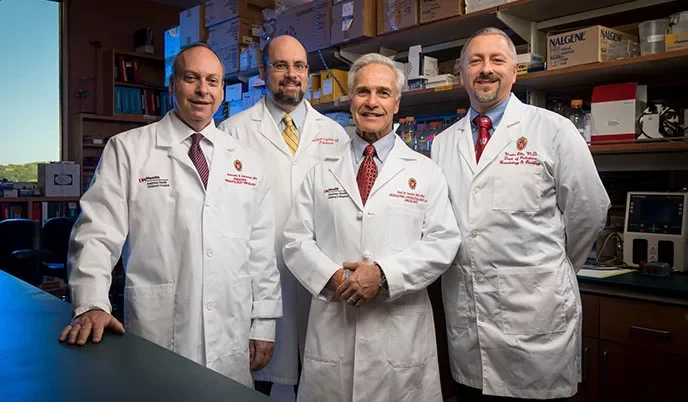
Harnessing Cellular Systems To Fight Deadly Diseases
Four decades ago, researchers at the University of Wisconsin School of Medicine and Public Health had the right idea — to pursue a theory that they could harness patients’ own immune systems to fight and defeat cancer. Their perseverance and hard work are paying off, as they’ve recently made great strides in cellular immunotherapy, along with colleagues in myriad medical fields.
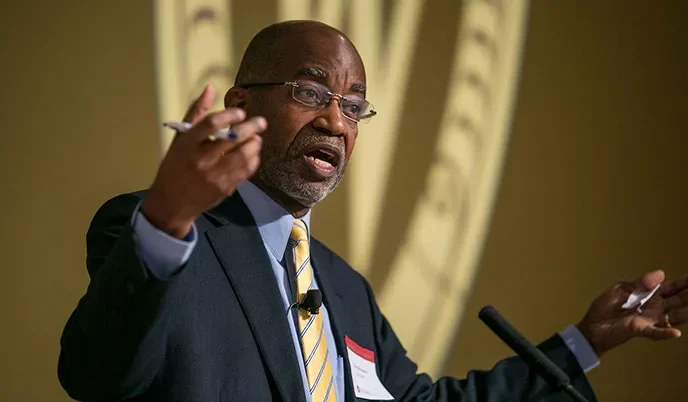
Advancing Health Equity
How can we best advance health and hasten health improvements for people who disproportionately suffer poor health outcomes? How can a lens of health equity influence decisions we make?